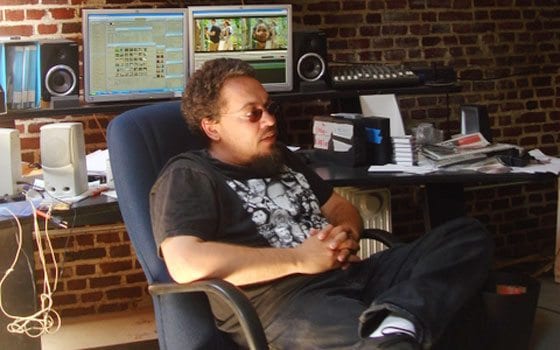After hitting the road with Public Enemy, Hub filmmaker returns to Roxbury

As the afternoon sun beats down, Robert Patton-Spruill instructs a small crew of budding filmmakers on how to position their equipment. The crew is filming his wife, Patti Moreno, for an installment of “Garden Girl TV,” an online program she hosts about sustainable living.
At first glance, the scene is textbook country: A big gray house inhabited by several generations of family, a vibrant vegetable garden dominating the yard, even a bustling chicken coop. For the most part, the family subsists on food it produces, living off the land.
But that land, believe it or not, is pure city. Like Patton-Spruill — a local filmmaker who shined at the Roxbury Film Festival (RFF) a decade ago and returns for this year’s 10th anniversary — it’s Boston through and through.
In addition to chicken, eggs and vegetables, the estate — formerly home to the late Henry Hampton, founder of Blackside Inc., the production company responsible for landmark achievements like the “Eyes on the Prize” documentary series — now houses FilmShack Productions, an independent studio that the couple runs themselves. Inside, as he guides teams of scuttling interns, Patton-Spruill speaks excitedly about his new film, “Public Enemy: Welcome to the Terrordome,” one of the highlights of this year’s RFF.
The feature-length documentary is a first for both Public Enemy and Robert Patton-Spruill, who directed and co-edited the film.
“I had a lot of fun doing it,” Patton-Spruill says. “I got to go on tour with Public Enemy! I got to do all sorts of stuff that you dream about doing if you’re not a rock star …”
“Welcome to the Terrordome” is the director’s first major foray into documentary, but Patton-Spruill is no novice. His first feature, the critically acclaimed and independently made “Squeeze,” was screened at the first RFF back in 1998.
A decade later, just as he has evolved as a filmmaker, the RFF has also grown. By successfully bringing people together, he says, the festival has become an “institution” of community building.






